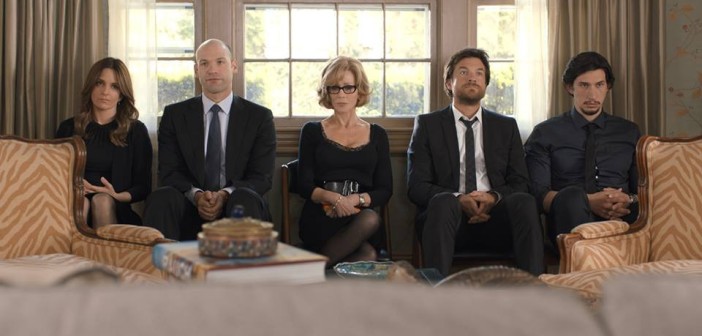Megann Horstead
Content Producer
Miscarriages, mishaps and moodiness leave dysfunction and drama to delightfully run amuck in “This Is Where I Leave You.”
The Warner Bros. comedy film, directed by Shawn Levy, opened on Sept. 19 to general audiences.
Although Levy is most known for his production and directing in the “Night At the Museum” series and “The Internship,” “This Is Where I Leave You” is one film that doesn’t stack up quite as well.
The film centers on the Altman’s, a dysfunctional family in the midst of a familial crisis, coming to live under one roof for seven days.
Although the Altman children are all grown up, the storyline puts their dying father’s last wish in action. Of course when a large family lives under one roof, chaos and dysfunction are bound to be revealed.
Jason Bateman’s character, Judd, leads the onslaught of dysfunction. His marital problems become a public issue, despite his natural tendency to keep private matters under wraps. Judd’s sanity and dignity unravel at the dismay of his sister of many words, Wendy (played by Tina Fey).
But Judd isn’t the only one carrying a baggage of problems. Everyone in the family seemed to have issues including Wendy, Paul (Corey Stoll), Phillip (Adam Driver) and Hillary (Jane Fonda). The youngest Altman child, Cole (Cade Lappin) had just one problem running through his mind, however. With drama unfolding across the house, Cole found it difficult to use his potty in peace, so he chose to use the front porch as his fortress of peace.
Dysfunction was everywhere in “This Is Where I Leave You.”
Alice’s miscarriages and Wendy’s moodiness are a few ways the film successfully capitalizes on mishaps but in the end, a number of other scenes set poor examples.
The appearance of Rabbi Charles Grodner (Ben Schwartz) seemed unnecessary at times. Phillip’s mockery of his Charles seemed funny in a number of instances. But of course when the entire family decides to mock the Rabbi, the film’s comedy falls flat.
Hillary’s attempt to portray motherliness was trumped by a line of jokes about her indecent exposures and stories told about her first time.
Judd’s relationship with his father was unclear throughout the film. Judd’s only memory of him came after smoking marijuana, which did not seem fitting.
Even so, the film wasn’t all trash. The relationship between Phillip and his fiancee Tracey (Connie Britton) seemed sketchy yet delightful. Tracy’s attempt to create a stable environment using counseling techniques was outrageous in commenting on misconceptions people sometimes hold about therapy.
Dax Sheppard’s film appearance was limited to a few scenes but much to viewers’ delight, he stole the film with his portrayal of Wade, the jerk sleeping with Judd’s wife.
Rose Byrne’s portrayal of Penny was sweet and right on mark. Penny’s delightful spirit brilliantly contrasted the dysfunctional nature of the Altman’s.
The cast has a number of household names, but of course jamming a film with talent doesn’t quite guarantee that viewers wouldn’t be left hanging in the end.
The film may not have pulled its weight to earn every penny of its box office earnings but it’s safe to say, the film had its finer moments.
“This Is Where I Leave You” is rated-R for language, sexual content and drug use.

